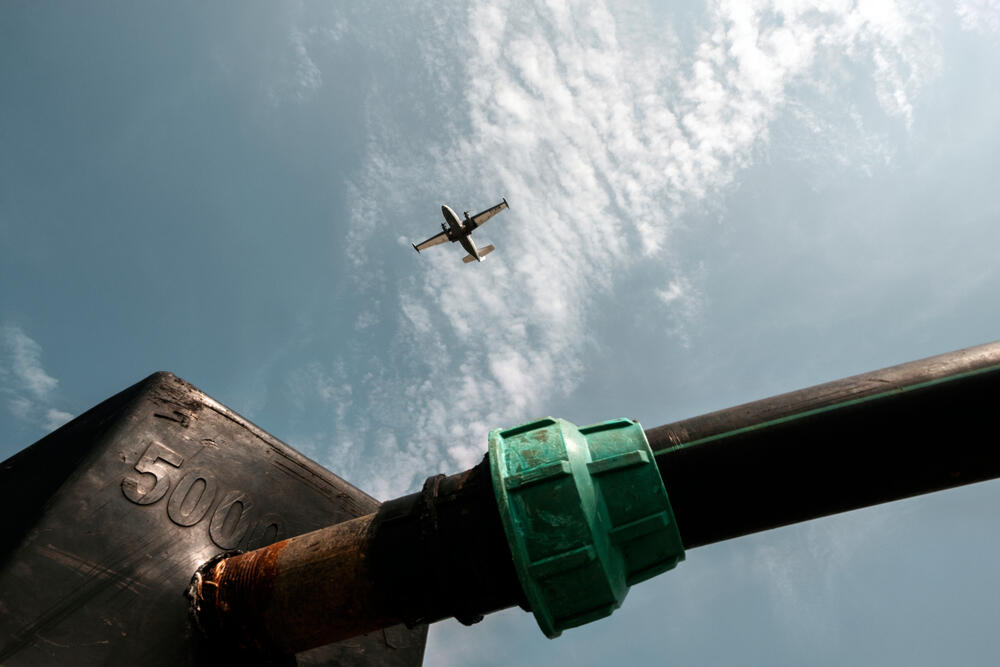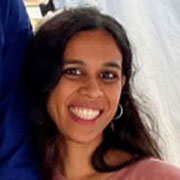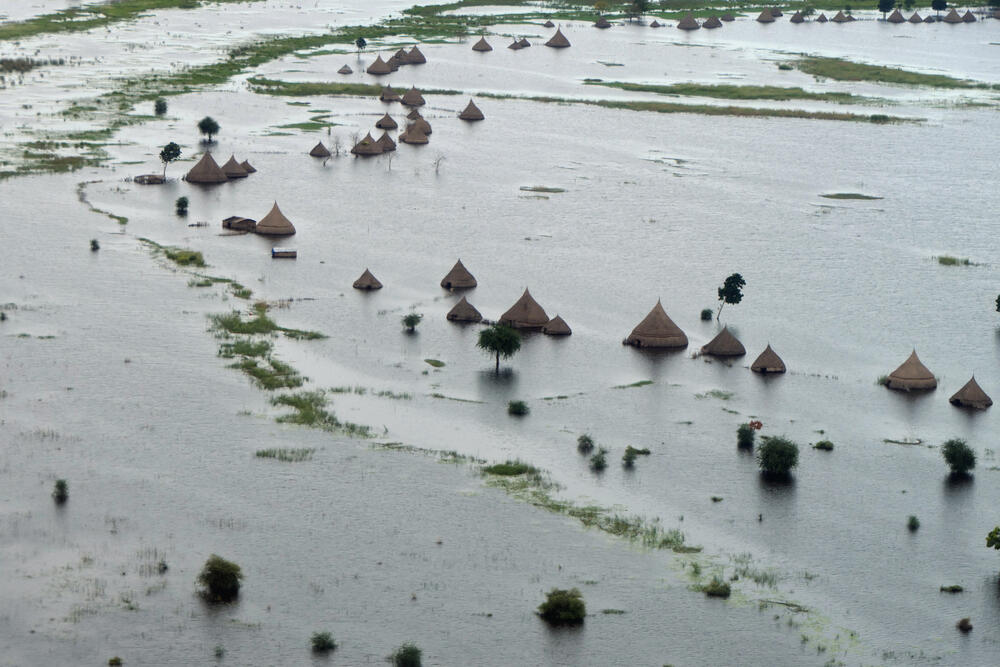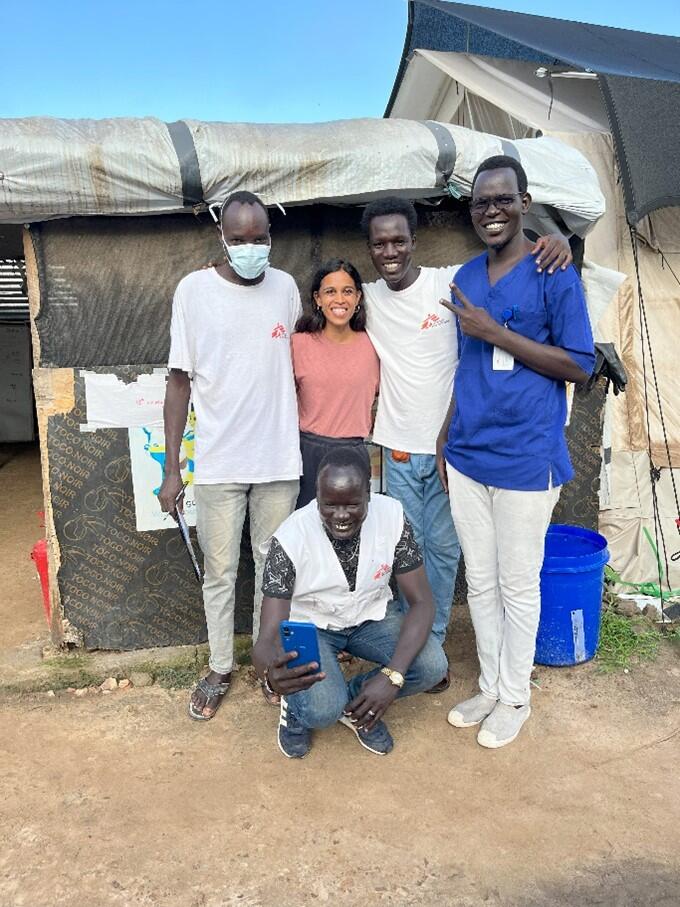South Sudan: The plane, the swamp and a Christmas Eve call
After a touching encounter with a critically ill patient in a remote part of South Sudan, doctor Nabiha Essaji relives a story that begins on Christmas Eve...
It’s my second week in Leer, South Sudan, and it’s Christmas Eve.
This town has seen armed fighting over recent years, displacing thousands from their homes. In 2012, the Médecins Sans Frontières / Doctors Without Borders (MSF) hospital in Leer was burned to the ground; now the facility we run here is a lifeline for local people.
I’m in the middle of another long shift, the only doctor on the ward, when a colleague calls me to the emergency room. He is worried about a patient with severe pains in his abdomen.
Our two clinical officers see 80 to 100 patients between them each day, some of whom are extremely sick. They are experienced medical professionals who are dedicated to their community and responding under pressure is not new to them.
“If MSF hadn’t been there, he most likely would have died. It’s as simple as that.”
Make a donation this festive period
Help our expert teams save lives in more than 70 countries around the world
The patient, Thomas*, is 18 years old. He lies very still on the bed. His brother, Soro, hovers anxiously beside him. Thomas’s voice is weak as he tells us he has felt nauseous and feverish for days.
Soro explains that they set out for Leer on foot from Agok, around 80 miles away – a journey of several days through swampland – with the intention of visiting relatives over the Christmas period. Thomas grew increasingly unwell on the journey; by the time they arrived at our clinic, the pain was almost unbearable.
He grimaces as I examine his abdomen, which is solid to the touch. This is a sign of peritonitis – an inflammation of the abdominal lining – which is most likely caused by a ruptured appendix. It is an emergency that is easily treatable with surgery, but we have neither an operating theatre nor a surgeon in Leer.
Thinking fast
We quickly make a plan. We start Thomas on vital intravenous antibiotics and fluids as well as pain relief, then perform an ultrasound of his abdomen that confirms the diagnosis.
Whilst we cannot provide the lifesaving surgery that he needs in Leer, there is an MSF hospital 70 miles away that can.
However, even though it is dry season, the roads are flooded and the hospital is completely inaccessible by car. Driving there through deep mud, swamp water and potholes would be impossible.
With the clock ticking, I speak to our clinical team leader. He calls the MSF hospital in Bentiu camp – home to 100,000 displaced people – which has an operating theatre and surgical team. Within hours, an emergency plane has been arranged to transfer Thomas and his brother to Bentiu.
They fly out on Christmas morning and they operate on Thomas that afternoon. Meanwhile, my day continues much as normal, with ward rounds and reviewing unwell patients.
Except today, when work is over, a hybrid Italian-Syrian-Canadian Christmas meal with my MSF colleagues is waiting for me back at the compound.
Honorary team member
Three days later, Thomas and Soro are flown back to Leer on the next available plane. It has been a long, strenuous journey for them both.
Thomas will stay on the ward for another 10 days until his stitches can be removed, but Soro says that he must return home – he has responsibilities there.
Without his brother, but surrounded by the MSF team and other patients, Thomas soon becomes an honorary MSFer…
Support our expert surgical teams working in crisis zones worldwide
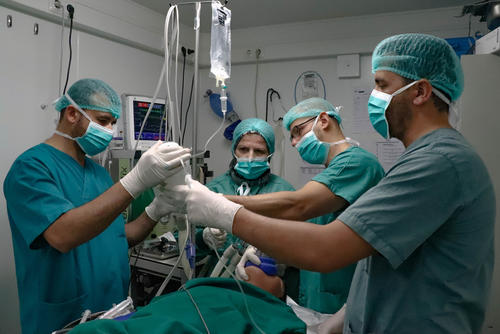
The civil war in South Sudan, which began in 2013, disrupted secondary school education across the country. Thomas is one of the lucky few in his generation to have attended some years of secondary school and he is able to speak a little English.
We often chat together. And, as most people around Leer speak Nuer, Thomas helpfully assigns himself the role of ward translator.
There is a culture of looking after each other in this community and, when he feels better, Thomas helps out where he can on the ward, fetching meals for other patients and calling for assistance on behalf of those who are unable to do so themselves.
In the new year, Thomas is lucky to get a lift on a moped part of the way back to Agok. He has made a full recovery and is all smiles as he leaves, promising to look after himself in the coming weeks.
One year later
Each December, as I make plans for the festive season, I find myself thinking of Thomas and Soro.
They grew up through war, hunger and uncertainty, without the chance to be children. I hope that now Thomas has the chance to continue in school and to enjoy his young adult years.
When his appendix ruptured, Thomas was young and fit, and he had the support and determination of his brother to get medical assistance. They both showed incredible strength and resilience to get to our facility at all. But if MSF hadn’t been there, he most likely would have died.
It’s as simple as that.
South Sudan is still in a state of crisis: the country has been through decades of conflict, while permanent floods are being intensified by the climate emergency, making it harder for people to get hold of food and making living conditions tougher by the day.
In addition, the war in neighbouring Sudan aggravated existing issues. Over 600,000 people fled into the country, 80 percent of them South Sudanese returnees and the remainder refugees seeking safety.
People’s need for medical care continues to grow. But MSF has an enormous impact in providing life-saving care to those who need it most.
* Names have been changed
MSF in South Sudan
Médecins Sans Frontières / Doctors Without Borders (MSF) works in hospitals and clinics throughout South Sudan, where we run some of our biggest programmes worldwide.
